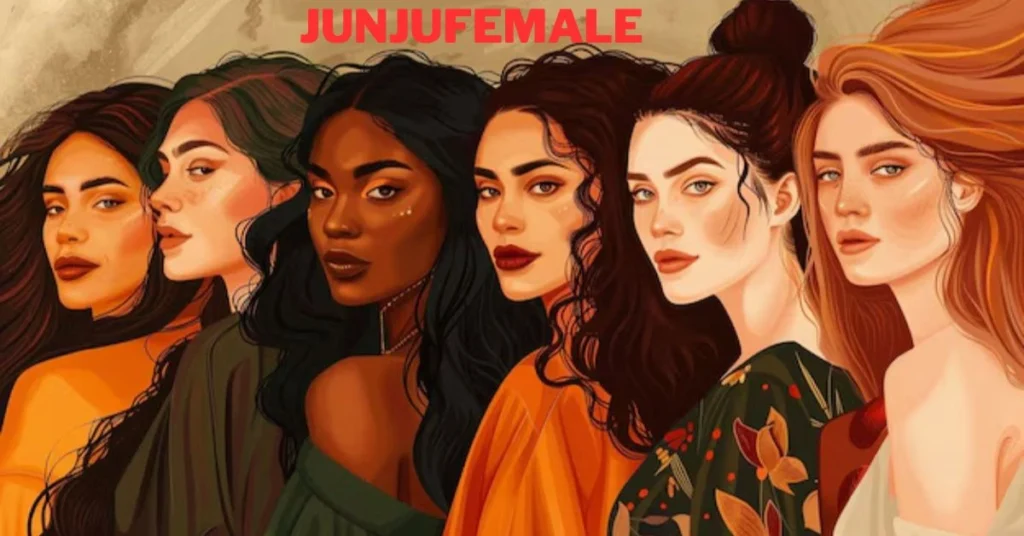Introduction
In the rapidly evolving cultural landscape of the 21st century, the concept of identity, especially gender identity, has garnered increasing attention. Among these discussions, the term “junjufemale” has emerged as an anchor in conversations about the modern female experience. The term encapsulates a wide range of dynamics that influence how women today navigate the complexities of societal roles, personal aspirations, and collective movements. This essay will explore the concept of “junjufemale,” focusing on its significance in shaping modern female identity and the broader implications of gender dynamics. We will dive into its origin, the cultural forces shaping this identity, and the roles women continue to play in this ever-changing world.
The Origins and Meaning of “Junjufemale”
To understand the concept of “junjufemale,” we must first explore the roots of the term itself. While the exact origins may be difficult to trace, “junjufemale” can be viewed as a portmanteau that reflects the evolving nature of femininity. The term “junju” seems to carry connotations of strength, resilience, and grace—qualities often associated with womanhood throughout history. Paired with “female,” it signals a modern reinterpretation of femininity, one that transcends the traditional archetypes.
In historical contexts, women have often been portrayed in rigid, binary roles: the caregiver, the nurturer, the passive participant in a male-dominated world. However, “junjufemale” seeks to disrupt these narratives by emphasizing the multidimensionality of women. It recognizes their inherent strength while also celebrating their emotional intelligence, creativity, and the diverse ways they contribute to society.
Shifting Gender Roles in the 21st Century
The 21st century has witnessed a significant shift in gender roles, with women stepping into spaces that were traditionally dominated by men. From corporate boardrooms to political offices, women are increasingly asserting their presence and challenging the long-standing gender biases that have shaped our world.
The rise of the “junjufemale” reflects this societal transformation. Women today are redefining what it means to be female by embracing a balance between professional aspirations, personal fulfillment, and social responsibilities. No longer confined to being homemakers or caretakers, women are asserting their right to pursue careers, passions, and leadership roles while simultaneously addressing societal expectations.
This shift in gender roles has been facilitated by several key factors, including:
- Increased access to education: Women around the world are achieving higher levels of education than ever before, empowering them to pursue careers and become leaders in their fields.
- Economic empowerment: Women’s participation in the workforce has grown, giving them greater financial independence and the ability to make decisions about their lives and futures.
- Changing social attitudes: Traditional gender stereotypes are being challenged, and society is beginning to recognize the value of diverse leadership and contributions from all genders.
The Intersection of Feminism and “Junjufemale”
The feminist movement has played a crucial role in shaping the concept of “junjufemale.” As a driving force for gender equality, feminism has sought to dismantle the structures that have historically marginalized women. The junjufemale identity aligns with feminist values but expands them by celebrating individual expression and uniqueness in each woman’s journey.
Feminism, in its modern form, is not a monolith. There are different strands, such as liberal feminism, radical feminism, intersectional feminism, and eco-feminism, each with its unique approach to achieving gender equality. The junjufemale concept embraces the idea that a woman can be many things at once—assertive and nurturing, ambitious and empathetic, bold and sensitive. By acknowledging the multiplicity of experiences, junjufemale allows for a more nuanced understanding of what it means to be a woman today.
Moreover, the intersectional nature of feminism helps to frame the experiences of the junjufemale, particularly in relation to race, class, sexuality, and other social identities. This framework recognizes that the oppression faced by women is not uniform and that multiple factors influence an individual’s experiences. By integrating an intersectional approach, the junjufemale perspective becomes more inclusive and reflective of diverse realities.
Media Representation and the “Junjufemale”
Representation in media plays a critical role in shaping societal perceptions of gender. Historically, female characters in movies, television, and advertisements have been confined to a narrow set of roles—often secondary to men. These characters were either the damsels in distress, the homemakers, or the love interests, never truly complex or fully realized.
In recent years, there has been a growing push for better representation of women in media, and the junjufemale identity reflects this change. More women are portrayed as dynamic and multi-faceted individuals. Characters like Wonder Woman, Captain Marvel, or even complex figures like Jessica Pearson from Suits, show a new archetype of female identity—strong, independent, and capable of navigating both personal and professional challenges.
This shift is also reflected in the way female stories are told. Women are no longer just objects of the male gaze; they are the storytellers, directors, and producers shaping the narratives. As more women take control of the narrative, the junjufemale identity finds its way into mainstream media, presenting more empowered and realistic portrayals of women.
The Role of Technology and Social Media
Technology, especially social media, has given women unprecedented power to express their identities and connect with others across the globe. Platforms such as Instagram, TikTok, and Twitter have allowed women to curate their own narratives, share their experiences, and advocate for causes that matter to them. The junjufemale thrives in this space, using social media to build communities, inspire others, and challenge harmful stereotypes.
Social media has also become a platform for activism. Movements like #MeToo and #TimesUp have highlighted the prevalence of gender-based violence and inequality, giving women a space to voice their experiences and demand accountability. These movements are deeply connected to the junjufemale identity, as they represent a collective fight for justice, dignity, and respect.
Moreover, social media allows for the celebration of everyday women who embody the junjufemale spirit. Influencers, activists, and regular users alike share stories of resilience, creativity, and empowerment, contributing to a broader cultural shift that recognizes the importance of female agency.
Challenges Faced by the “Junjufemale” in the Modern World
Despite the progress made in redefining female identity, the junjufemale still faces significant challenges. Patriarchy, gender-based discrimination, and societal expectations continue to shape the lives of women across the world. The pressures to conform to traditional gender roles persist, even as women push boundaries and break barriers.
For many junjufemales, the challenge lies in finding a balance between personal ambition and societal expectations. Women are often expected to excel in their careers while simultaneously managing the responsibilities of family life. This can create tension, leading to burnout and feelings of inadequacy. The societal demand for perfection—whether in physical appearance, professional achievements, or parenting—places immense pressure on women.
Additionally, women of color, LGBTQ+ women, and women from marginalized communities face compounded challenges due to intersecting forms of oppression. The junjufemale identity must navigate not only gender discrimination but also racial, economic, and social inequalities. This makes the fight for equality even more complex and urgent.
The Future of the “Junjufemale”
As we look toward the future, the junjufemale will continue to evolve, shaped by the changing dynamics of society, culture, and technology. Women will play an increasingly pivotal role in shaping the direction of the world, from politics to business to social movements. The junjufemale identity, with its emphasis on resilience, creativity, and empowerment, will be at the forefront of this transformation.
Education, mentorship, and solidarity will be essential in supporting future generations of junjufemales. By fostering environments that celebrate diversity, encourage innovation, and challenge inequality, society can create spaces where women can thrive and achieve their full potential.
Moreover, as gender norms continue to evolve, the junjufemale identity may become more fluid, inclusive of those who do not fit neatly into traditional gender categories. This inclusivity will further expand our understanding of femininity and allow for more diverse expressions of gender identity.
Conclusion
The concept of “junjufemale” represents a modern reimagining of femininity that celebrates the complexity, strength, and resilience of women. It is an identity that challenges traditional gender roles, embraces intersectionality, and empowers women to pursue their ambitions while remaining true to themselves. In a world where gender dynamics are rapidly evolving, the junjufemale will continue to play a crucial role in shaping the future, leading the way toward a more inclusive, equitable, and empowered society.
Read More: Play Heardle 60’s: Challenge Yourself with the Greatest Songs of the 1960s






